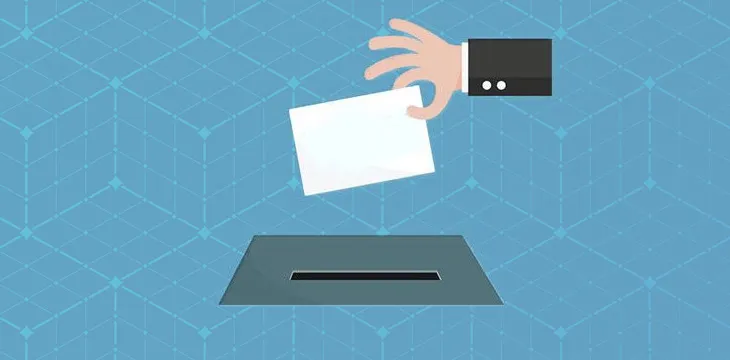|
Getting your Trinity Audio player ready...
|
South Korea’s Ministry of Science and ICT, and the National Election Commission (NEC), have announced plans for setting up a voting system powered by blockchain.
If results are successful, the system will be considered for online elections, according to the NEC.
Although online voting has been utilized in the country—the first time in 2013—use among citizens has been limited, to about 5.64 million people in all due to security concerns. The country has a little over 50 million people, of which 42.5 million are registered voters, with an average turnout of 64.3%.
ZDNet said that the government expected blockchain to aid with voter authentication and result saving, where the added transparency and security would allay fears of fraud and hacking. The results of elections, where votes are to be inputted by mobile devices and personal computers, will be viewable as the data is included in the blockchain.
The initial trials will begin in December, with surveys conducted by Seoul National University’s Blockchain Society and the Korea Internet & Security Agency. The NEC said that aside from blockchain, it was also looking at applying artificial intelligence (AI), big data, and Internet of Things (IoT) to the voting system.
The use of blockchain for polling in South Korea is not altogether new. Last year, the province of Gyeonggi-do used Blocko’s Coinstack platform to decide on the approval of 527 community projects. This involved the votes of 9,000 residents.
In Japan, the city of Tsukuba has made use of blockchain for choices on local “social contribution programs.” Although there were reports of some difficulties for some voters, the test was declared a success.
Zug, the ‘Crypto Valley’ of Switzerland, has conducted municipal voting via blockchain, though this involved only 72 citizens. The city government intends to expand the use of blockchain, to be part of its digital ID system.
In the U.S., there have been several initiatives involving distributed ledger technology for voting. In West Virginia, its first use has been limited to allowing overseas members of the military to vote, with a mobile app. In Maine, proposals have been considered for use of blockchain in municipal elections.

 07-09-2025
07-09-2025 





